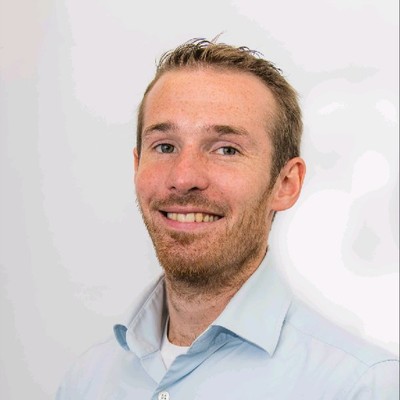AI - Revolutionising the Medical Industry
AI is poised to bring big changes to the healthcare industry.

With rare diseases becoming an increasingly important social and medical issue, there’s a real onus being placed on furthering awareness, finding support and drug discovery for those affected. While the traditional drug discovery model relies on inventing blockbuster drugs which are not applicable for rare diseases, there is a growing need for technology, such as AI, within the healthcare industry to serve rare disease patients.
Ahead of RAREfest, an annual two-day UK festival raising awareness of rare conditions and shining a light on innovative solutions, TechRadar Pro sat down with Healx co-founder and CEO, Tim Guilliams, to discuss the opportunities – and challenges – technology brings to this new era of drug discovery in the rare disease industry.
- What is AI? Everything you need to know
Why rare diseases?
Currently, there are 7,000 rare diseases affecting 350 million people worldwide and 95% of them are still without an approved treatment.
The traditional drug discovery model typically takes between 12-15 years and costs around $1.8bn. When this commercial drug model is applied to rare diseases, the figures are ominous; it would take more than $13Tn and thousands of years of research to develop potential treatments for 7,000 diseases. The only viable alternative for the millions of patients waiting desperately for a treatment is to establish new models which harness the power of computational biology.
How is Healx trying to find treatments for rare diseases through technology?
In the past 4 years we developed Healnet; the most comprehensive AI platform for rare diseases. The platform combines AI, pharmacology expertise and patient group insights to predict therapies with significantly higher accuracy and safety, much faster than conventional approaches. Healnet is changing the entire drug discovery model – our proprietary knowledge base covers over 7,000 rare diseases and has shown that we can translate drugs into the clinic 80% faster and about 95% cheaper than traditional drug discovery.
What are the challenges of using this type of technology for rare disease treatment?
Within the scientific discipline, there are three key challenges:
- The first challenge is awareness. Patient Groups used to focus their efforts on basic research, which rarely translates into therapies. Awareness of the fact that novel AI technologies are now available to help identify potential treatments is still bottlenecked.
Are you a pro? Subscribe to our newsletter
Sign up to the TechRadar Pro newsletter to get all the top news, opinion, features and guidance your business needs to succeed!
- Currently, most of the data is unstructured and not optimised for AI mining. Many institutions and companies alike are working towards finding a solution to this challenge, we are working hard with our partners to bridge this gap.
- Another significant challenge is validating treatment predictions. Predictions are relatively easy to validate for most common conditions with well-established disease models. Yet, for rare diseases there are far less disease models to validate predictions and this massively inhibits drug development for these debilitating conditions.
What's next for Healx?
We are focusing our efforts in 3 areas:
- Scaling up - now that Healnet, our AI platform is in place, we are looking to deploy it at scale, aiming to make a significant impact on 100 rare diseases by 2025.
- Data integration - we have over 20 data types that feed our AI. Currently these data types are not fully integrated. Now, we are integrating these data types to harness the synergy between them and consequently improve our AI predictions further.
- Precision medicine - our work on rare diseases enables us to evolve our technology towards individually tailored treatments. After all, each patient’s biology and disease signature are a rare combination which requires tailored treatment.
What impact will technology have over the healthcare industry over the coming years?
Machine Learning and AI technology will have ground-breaking impacts upon the entire healthcare industry.
The healthcare industry has accumulated a vast mass of data over the past century – increasingly so in the past two decades. Once AI becomes fully automated, the structuring and consolidation of facts within medical data, learning from these facts, and applying that knowledge to discover putative therapeutic interventions will occur even before the disease is affecting the individual. The future of our healthcare system is preventative medicine. AI technological advancements will predetermine the onset of conditions and enable healthcare professionals to provide preventative treatments. The future AI dependent health model is cheaper, faster and more efficient.
Once AI is fully integrated within the healthcare system, the impact will revolutionise medicine. Treatments will be developed faster and precisely tailored to the individual’s diagnostic data. The system as a whole will be able to learn and improve on a daily basis offering patients not only treatments to ailments, but also warning them as to when and how to prevent them.
The most exciting aspect about AI in healthcare will be the incredible value to patients while saving billions of dollars for governments.
Tim Guilliams, co-founder and CEO at Healx
- We've also highlighted the best AI platforms for business
Tim is a tech entrepreneur from the Cambridge Cluster (UK). He is passionate about using big data and artificial intelligence to accelerate treatments for rare diseases. He is the Founder and Chief Executive of Healx Ltd, a tech company focused on treatment predictions for rare diseases.

